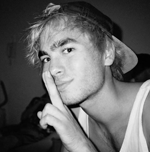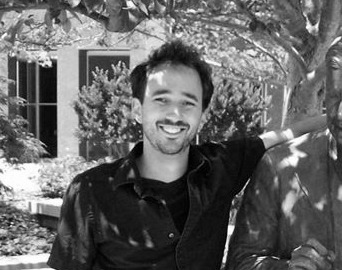In the nineteen nineties, twin serpents came about: increased media access (in the infant form of cable television and then, more importantly, the birth of the internet) and an expansion of public filth consumption. David Kamp referred to the resulting years as the “Tabloid Decade.”
Crime sagas like the Menendez Brothers murders, the O.J. Simpson trial and the Monica Lewinski scandal dominated headlines and water cooler conversations. They sprouted up in the cracks of more obvious entertainment: the Jerry Springer Show, Maury Povich, Jenny Jones. All seemed intent on bringing media events down to the lowest common denominator: the more sex, the more violence, the more salaciousness, the better.
It didn’t seem to bother anyone that, for the most part (and at least on the talk shows, if not the majority of players in the televised trials), these weren’t actors or professional entertainers. They were more or less your average Joes, sometimes exploiting economic opportunities, in turn exploited for our entertainment. An eager kind of voyeurism trumped decency in the name of having a good time.
American culture coarsened. We’re still picking up the tab.
The behind the scenes mechanisms weren’t exactly unintentional: with the expanded media platforms (and 24/7 news cycles), content producers needed, well, content to fill time slots, and this first wave of reality television (and make no mistake, the O.J. Simpson saga was just that) gained traction because they had all the ingredients of great drama, without the nuisance of having to hire actors and screenwriters and crew.
Better to put a couple camera in Judge Ito’s courtroom, and turn real people into entertainment.
Marcia Clark, Christopher Darden, Kato Kaelin, Johnnie Cochran. Worse, the victims and their families.
And, at the center of it all, an actual celebrity: former NFL star and Hertz spokesman (and amateur golfer) O.J. Simpson.
A sort of slumming A-Lister starring in the longest running television movie, one you didn’t have to pay because, after all, he was actually on trial for murder.
The O.J. Trial is the easiest and most obvious high watermark (or maybe, more aptly put, low point) of trashy nineties reality culture.
(Other examples include, but are not limited to, the graphic aerial footage of the Rodney King Riots; the exciting details behind the deaths of Kurt Cobain, Tupac Shakur, and Biggie Smalls; the aforementioned Menendez case; the paparazzi inspired death of Princess Diana; the murder of Jonbenet Ramsey and the resulting media event; the Olympic ice skating melodrama of Tonya Harding; the stand-off at Waco, Texas; Lorena Bobbitt’s phallic expatriation; and, once again, the hunt for Bill Clinton and the contents of the Monica Lewinski scandal, made all the sleazier because the salacious details were wrapped up in something called the “Starr Report”).
In short, it seems the nineties were the time when we lost sight of what was reality and what was entertainment and sort of blended the two together.
Now, we can relive the whole thing with the new mini-series, American Crime Story: The People vs O.J. Simpson, which (like the original trial) is addicting television. It is also better than it has any right to be.
It stars Cuba Gooding, Jr. as O.J. Simpson, making it a sort of morose sequel to that nineties favorite, Jerry Maguire, where Cuba Gooding, Jr. plays an NFL star every bit as charismatic as O.J. himself was before the fall.
That bit of charismatic casting helps explain how shocking O.J. Simpson as murder suspect must have been to a world used to absorbing his personality through comedies like “The Naked Gun”. Pop culture pedagogy for millennials such as myself who find “O.J. Simpson” and “murder” inseparable (and who previously found “Cuba Gooding, Jr.” and “Snow Dogs” inseparable).
The show works best on the level of cultural education: there is some sort of sociological wisdom in the way the show inflates the importance of Robert Kardashian’s children in the O.J. Simpson narrative (if the O.J. trial is some Promethean monster bringing the fire of reality television to the hearts of Americans, than nothing burns brighter than our desire to keep up with the Kardashians), but also in the way it examines the underpinning reasons behind the public’s enduring fascination.
It wasn’t the sex, or the violence, or the mystery. Not even the sheer absurdity of the spectacle (media darlings and sycophants falling over each other for a second in the limelight).
Those were all important ingredients, but it lingered in peoples’ minds because it dealt directly with the things that unfortunately divided us: most obviously, racism. But also sexism, domestic abuse, the meaning of celebrity (and, helpfully wrapped within the latter, issues about class).
The O.J. Trial, like great literature, was swollen with subtext and theme.
And the O.J. Trial, like any tabloid worth its weight in cellulite, was all about exploitation.
The shame of the nineties is that we shallowly intruded ourselves past the private grief of mourners and extrapolated all of that from two real life murders.
We should, of course, be haunted by at least the twang of guilt, but it seems too late for that now.
It is now just Historic Fact, and the fact is, we’re still sort of obsessed.
Not just with O.J., but with the nineties in general.
We’re living inside some sort of belated sequel to the nineties, where nostalgia has gifted us “Fuller House” and Hillary Clinton is running for president (a nineties woman if there ever was one, who probably shares with Marcia Clark the the unique and nauseating perspective of being a public American female scrutinized under a microscope). She is opposed (at least on the Republican side) by Donald Trump, who helpfully pointed little Macauley Culkin in the right direction in 1992’s “Home Alone 2”, who’s eager to conjure up the ghosts of scandals past to dog Hillary in this race, and whose entire persona and the political rallies that propel him seem based on the remnants of nineties tabloid culture. Like nineties sleaze merchants, he is eager to exploit the things that divide us (namely fear, grossly espousing anti-Mexican and anti-Islamic rhetoric that conveniently forgets the David Dukes of the world, or even the Oklahoma City Bombing and what it had to say about race’s relation to terrorism in the nineties). He is, of course, an actual reality television star, and effortlessly turns presidential debates into Jerry Springer shows. His rallies more resemble a nineties Guns ‘n Roses riot then anything we normally see in American politics.
Even the insinuations lobbed at him by fellow Republican Marco Rubio, about his “small hands” (and his eager rebuttal) recalls an episode from the nineties. When Marica Clark called out O.J. Defense Attorney F. Lee Bailey for using prop gloves for an argument about how the police might have planted O.J.’s glove at Rockingham, Bailey brought to court a pair of gloves that were sized small, instead of the extra large gloves that belonged to O.J.
She insinuated the small gloves reflected the size of Bailey’s actual hands (and, ahem…you know), to which he, like Trump, felt the need to respond. Publicly. On television. During a murder trial.
The O.J. Trial reverberates today in one final aspect, too: not the knife that was allegedly discovered on his property (and is being currently tested for DNA). Not even his current incarceration due to theft in Las Vegas.
The fact that research into CTE (Chronic traumatic encephalopathy), or the effects on repeated concussions on NFL players, has gained traction. That the central figure in the CTE drama, Doctor Bennet Omalu (played by Will Smith in the film “Concussion”) has recently conceded that he thinks O.J. Simpson suffers from CTE.
And, according to Dr. Omalu, “Black men make up about six percent of the population in America, but black men make up about 70 percent of football players…”, meaning we see a disproportionate amount of African Americans at risk of developing CTE, all in the name of (once again) entertaining us.
From Ray Rice and domestic violence, to the murder of Nicole Brown and O.J.’s current incarceration, we have a problem.
Underscoring the fact that the O.J. Trial was actually about race after all, only in a way no one discussed or comprehended at the time.
Luckily, we have Donald Trump to opine on the epidemic.
His insight? “Football’s become soft. Like our country’s become soft.”
Because nothing speaks to a country’s greatness like permanent brain damage.
At least none of us are bored.



